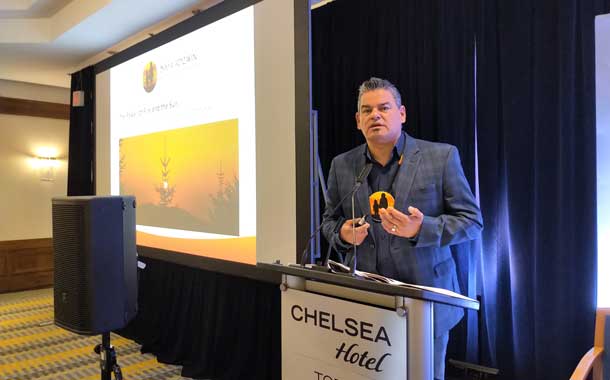
TORONTO – Isadore Day, CEO of Bimaadzwin, congratulates newly elected and re-elected municipal leaders across Ontario. To those that served and were not successful or decided to step back and let a new generation lead, they too are respected and acknowledged for their sacrifice and contribution.
“Serving local interests and addressing the needs of the people at the community level is rewarding overall and will always have its challenges – that goes without saying. Finding ways to work collectively with other jurisdictions and finding mutual goals is something that should never wait until a region is in the midst of a crisis or emergency,” says Chief Day, who spent 15 years as an elected First Nation official in his community of Serpent River First Nation, and is former Regional Chief of Ontario.
“This year when the PCs defeated the Liberals in Ontario to form the next provincial government, political priorities became altered and a new focus would see a diminished Ontario Reconciliation agenda, cap and trade, and many social programs that were making a ‘quality of living’ difference for Ontarians and First Nations. An inevitable response: find a way to address issues at the local and regional level with strong and strategic partnerships.
“The reality is that we rely on local leaders in First Nations and in municipalities across Ontario to address the standard critical issues facing regional populations and communities. These critical issues include economy, procurement, employment, regional services and infrastructure investments. But the big question in everyone’s mind is, will we survive as a human species 20 years from now?” questions Chief Day.
Failure of local governments, First Nation and municipal leaders to come together, results in ineffective regional clusters of communities unable to realize their collective strengths and opportunities. Far too many times, local governments fail to build necessary bridges beyond community borders, resulting in missed opportunities like making necessary impacts on the global level like trade policy, national energy policy, and the scariest issue of our time – altering the impacts and uncertainty of climate change.
“Climate change is one of the major challenges of our time and adds considerable stress to our societies and to the environment. From shifting weather patterns that threaten food production to rising sea levels that increase the risk of catastrophic flooding, the impacts of climate change are global in scope and unprecedented in scale. Without drastic action today, adapting to these impacts in the future will be more difficult and costly.”United Nations on Climate Change – http://www.un.org/en/sections/issues-depth/climate-change/
Chief Day also says that building bridges between municipal and First Nation governments will take education, awareness, understanding the different histories and governance structures, setting priorities, and creating partnership tables, and making investments of time and effort. Ultimately, joint effort and action plans are far better than having no plan at all.
“On a pragmatic level, communities protecting the environment together, making Reconciliation a collective value, and pooling resources for making communities stronger together – that is where we are going to see the greatest impacts on the bigger issues,” he concludes. “First Nations, as rights holders, are neither provincial structures of the province nor are they federal subjects, rather First Nation Chiefs and Councils who are jurisdictional partners that can strengthen regional planning and achieved success. The first step is for First Nations and municipal leaders to convene in one mind and in one heart – there is no alternative to collective leadership solutions.”







